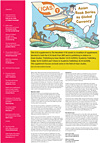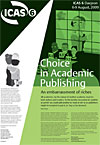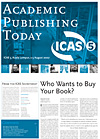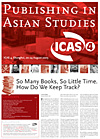IBP 2011
ICAS Book Prize 2011 Citations of prize winning books and best PhDs
IBP 2011
The
ICAS Book Prize now in its fourth edition saw a steep rise in the
number of books submitted. We received no less than 200 books from 45
publishers in the field of Asian studies. The IBP 2011 Reading Committee
consisted of Anand Yang (Chair) and Manuela Ciotti, Derek Heng, Alex
McKay and Khun Eng Kuah-Pearce.
IBP 2011 Social Sciences winner
Uradyn E. Bulag, Collaborative Nationalism. The Politics of Friendship on China’s Mongolian Frontier (Rowman & Littlefield Publishers, 2010)
The
history of Inner Asia has been shaped by the tripartite interaction of
China, Tibet, and Mongolia, and in the light of modern Chinese state
policies towards its “minority groups” Collaborative Nationalism is
concerned with ‘reconsidering the question of the political in
ethnopolitics.’ China’s nationalising project is aimed at a
collaborative nationalism, and this work is essentially an examination
of the politics of friendship. Central to this are the competing visions
of Chinggis Khan, whose achievements have been contested and
appropriated to serve the interests of different regions and ethnic
groups. Bulag examines these issues in a stimulating, even impassioned
exploration of the levels of friendship and association between ethnic
groups, centralising Mongolia in Inner Asian history and advancing the
concept of “collaborative nationalism” as a device through which to
understand the actualities of inter-ethnic relationships. We are pleased
to award the ICAS Book Prize 2011 to Uradyn Bulag for his highly
original work, well grounded in both Asian and European sources, which
will inspire students and specialists alike to rethink approaches to the
region and to the analysis of national identities.
IBP 2011 Humanities winner
Stein Tønnesson, Vietnam 1946: How the War Began (University of California Press, 2009)
It
is immediately apparent that Vietnam 1946: How the War Began is an
important book. Tønnesson argues that this was not merely an ideological
conflict, as has hitherto been regarded and understood, but one that
was first and foremost the result of geo-political blunders and
misreading by all parties involved during the immediate aftermath of the
Second World War. Significantly, He argues that the conflict could have
been prevented, and concludes by examining how each of the key figures
involved might have acted to prevent war. One of the great strengths of
Vietnam 1946 is that it is the product of several decades of research
and reflection. It carries the authority of an author who has closely
studied both the available sources and the individuals involved in the
decision-making processes. We are pleased to award the IBP 2011
Humanities to Stein Tønnesson for his compelling narrative that
ultimately recognises the limits of historical enquiry, for important
records remain unavailable.
IBP 2011 Colleagues’ Choice winner
Alexander Huang, Chinese Shakespeares. Two Centuries of Cultural Exchange (Columbia University Press, 2009)
The
Chinese appreciation of Beethoven is well known: of Shakespeare, less
so. Chinese Shakespeares is an original and engaging study of the
Chinese adoption of the English languages’s greatest playwright. This
work may be enjoyed in its own right, but is also a study of both
Chinese cultural engagement with the West and of cross-cultural
communication in theatre and film. Shakespeare’s works largely escaped a
colonial context in their early manifestations in China, and were often
imbued with localised meanings that enabled their partial
indigenisation. Shakespeare continues to be interpreted and
reinterpreted in China for both local and global audiences and Huang’s
study of its various manifestations and meanings, its translations and
its performaces, will be the standard text in the field for years to
come. We are pleased to award the IBP Colleagues’ Choice Award for a
study which draws on a wide range of sources, and is a significant
contribution to literary studies, cultural history, and studies of
globalisation.
IBP 2011 Best PhDs
For
this edition we received nearly 40 theses which represented a strong
increase with the previous editions. The IBP Best PhD 2011 Reading
Committee consisted of Birgit Abels and Iza Hussin.
IBP 2011 Best PHD Social Sciences
Imran Bin Tajudeen, Constituting
and Reconstructing the Vernacular Heritage of Maritime Emporia in
Nusantara: Historic Adaptation and Contemporary Accentuations (National University of Singapore thesis, 2009)
Constituting
and Reconstructing the Vernacular Heritage of Maritime Emporia in
Nusantara is a rich and nuanced study of urban architectural forms in
the ports of Austronesian Southeast Asia. In particular, the port cities
of Nusantara have been shaped by both the regional diaspora and
intra-regional trading and shipping networks, making them a uniquely
dynamic - and challenging - environment for study. Tajudeen's reading
offers a number of useful interpretive interventions into the
scholarship on native architecture, not only reading "artefacts as
texts", but "texts on artefacts", incorporating the dimension of time
both in terms of the "predicament of ruination" and in terms of the
writing and transformation of history in heritage and preservation
projects. Tajudeen's work offers a new reading of the Asian urban built
environment as a vernacular practice, continually being interpreted and
reconstructed by local, state and regional actors, and therefore
constantly in need of a creative and responsive scholarly approach. For
its theoretical originality, its contributions of data from the field
and its potential for advancing Asian studies scholarship, we are very
pleased to award Imran bin Tajudeen the ICAS Best Thesis Prize in the
Social Sciences.
IBP 2011 Best PHD Humanities
Carmen Pérez González, A Comparative Visual Analysis of Nineteenth-Century Iranian Portrait Photography and Persian Painting (Leiden University thesis, 2009)
A
Comparative Visual Analysis of Nineteenth-Century Iranian Portrait
Photography and Persian Painting presents a meticulous and well
thought-out analysis of Iranian nineteenth-century visual
representations of identity and their aesthetics. In doing so, she
builds on a large and hitherto understudied, if not undiscovered body of
photographs that were taken through the lenses of both Iranian and
non-Iranian photographers. By cross-examining nineteenth-century Iranian
portrait photography and the rich Iranian portrait painting tradition,
González is able to pinpoint the subtleties that underlie the visual
negotiation of a distinctly Iranian identity that is alert, in a
critical way, to European influence. What makes her approach so valuable
and fresh is González’s ability to unveil the processes of the creation
of meaning through photographic art in nineteenth-century Iran. She
does so by contextualizing portrait photography within its historical
and cultural frameworks of reference. Such a project requires a
full-fledged theoretical framework that is informed by several
disciplines including Islamic art history, history of photography,
post-colonial studies, and world art history that she has carefully
crafted. We are pleased to award Carmen Peréz González the ICAS Best
Thesis Prize in the humanities for this extra-ordinary piece of PhD work
that will certainly have repercussions beyond world art and Iranian
Studies.




